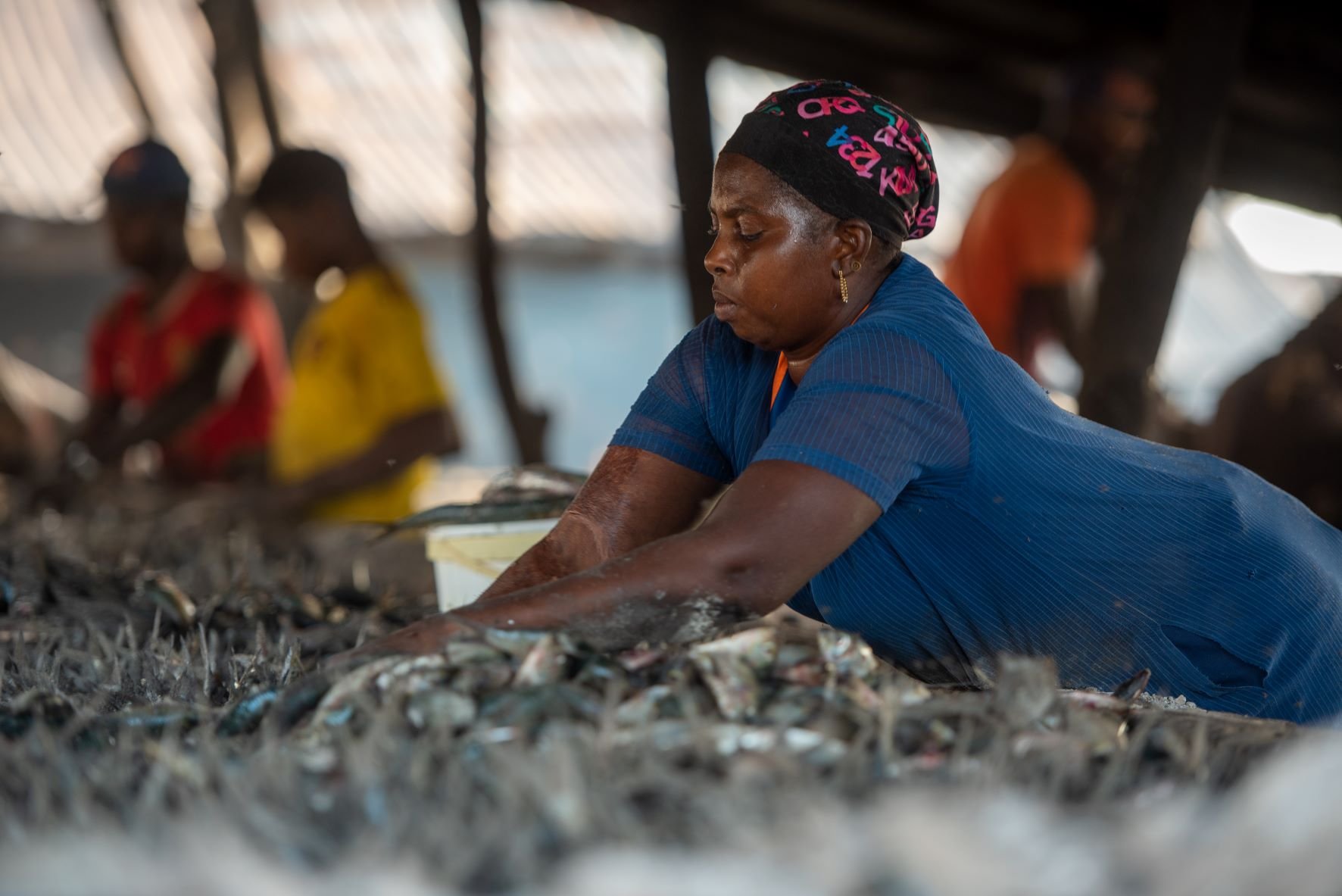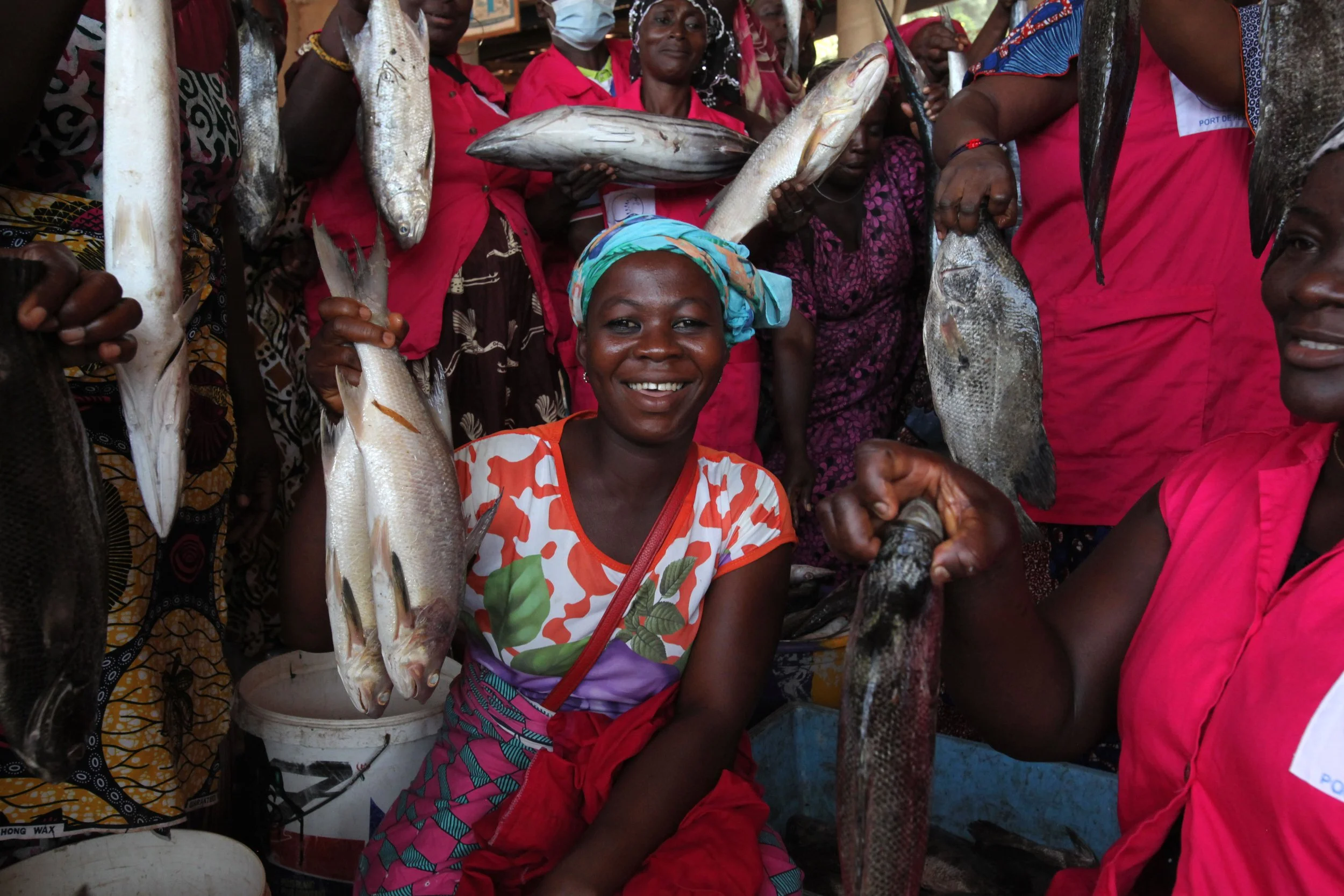JOINT PRESS RELEASE: Small-scale fisheries are small in name only. Half a billion people – 7% of the global population – are at least partly dependent on them for food, employment and income. They are the largest group of ocean users, have contributed the least to the ocean emergency, and are among the most affected by it. Yet their needs, roles and rights are often ignored, and they are generally sidelined or excluded from major policy discussions that directly affect their lives and livelihoods.
West Africa: PESCAO should be more effective and attentive to artisanal fisheries
The PESCAO programme for the improvement of fisheries governance in West Africa, financed by the EU from the 11th EDF Regional funds, started in June 2017 and will end in June 2024. After nearly 4 years, an evaluation is underway to assess the results obtained and to see how to improve its implementation, in a context where the countries of the ECOWAS region are focusing on the development of a blue economy strategy.
Making fish worth its weight in gold: granting better access to markets for women in African artisanal fisheries
EU-Mauritania SFPA: The requests of the Mauritanian artisanal fisheries and civil society
This week the European Parliament is discussing a first draft by rapporteur Izaskun Bilbao on the Sustainable Fisheries Partnership Agreement between the European Union and Mauritania. This agreement is of great interest to the EU fisheries sector and is the most expensive of all fisheries agreements between the EU and third countries.
How will the EU contribute to support sustainable artisanal fisheries in Africa through its International Partnerships
The new EU regional programming for Africa gives fisheries and oceans greater importance. It also focuses more on small-scale fisheries stakeholders and civil society organisations, which is an opportunity for them to make their voice heard. This article covers a summary of the 2014-2020 and the ongoing 2021-2027 programming, calls for more policy coherence and recommends increased participation of stakeholders for greater and efficient use of the EU funding.
Joint statement - European and African decision-makers should join forces to support sustainable artisanal fisheries in Africa
In view of the summit that will bring together the leaders of the European Union and the African Union in Brussels on 17th and 18th February 2022 and in the context of the International Year of Artisanal Fisheries and Aquaculture (IYAFA), six civil society and professional organisations call the EU and AU to take concrete action in three key areas. Click on the link to read more.
The new EU-Mauritania agreement: towards a sustainable management of small pelagics in West Africa?
In this third article in the series on fisheries in Mauritania, the authors review the state of overexploitation of small pelagic stocks, look at the ways the EU SFPA seeks to address the issue and come back to the demand of several stakeholders for a regional fisheries management organisation for shared small pelagic stocks.
Happy International Year of Artisanal Fisheries!
Understanding the conservation finance industry
More aquaculture to feed the world? Not at the expense of African fishing communities
Nowadays, aquaculture provides more people with food than capture fisheries, and the tendency is growing. The accompanying demand for fishmeal and fishoil, driven mainly by China, is increasingly being covered by West African fishing. However, putting the blame for the threat to fish stocks in the region solely on China’s appetite for seafood falls a little short.
Living on the frontline: climate change will first impact African coastal fishing communities
Experimental fishing or experimental pillaging in Liberia?
Small-scale fisheries’ participation in decision-making is crucial for food security of African coastal communities
African and European artisanal fishers, together with their international partners, issue a joint declaration before the UN Food Systems Pre-summit underscoring their concerns about the overall process, the lack of consultation of small-scale fisheries stakeholders, and the promotion of large-scale industrial aquaculture by some of the UNFSS organisers.
EU-Madagascar SFPA negotiations resume: Key issues for the future of small-scale fisheries in Madagascar
The EU new approach on blue economy should recognize that artisanal fisheries are the main provider of "Ocean Livelihoods" in Africa
Seychelles FITI report: Stakeholders make recommendations regarding access by fleets of foreign origin
Seychelles is the first country in the world to publish a report that assesses the compliance against the transparency requirements of the FiTI standard. The author comments on the main findings of the Multi Stakeholder Group and highlights the recommendations for foreign fleets and the importance of understanding the value of local fisheries.
Key issues for EU-Mauritius SFPA negotiations: Tuna stocks sustainability, post-covid19 recovery for the local sector and transparency
Ensuring Gender Equity in artisanal fisheries
Coinciding with the celebration of the International Women’s Day, and looking at the upcoming International Year of Artisanal Fisheries in a year from now, the author reviews the dedicated Gender Guide for the implementation of the Voluntary Guidelines on Small-scale Fisheries, published by FAO and ICSF in 2017.
The smoke and mirrors of Blue economy bonanza make African women fish processors choke
What future for Sustainable Fisheries Partnership Agreements?
In view of the global evaluation of the Sustainable Fisheries Partnership Agreements (SFPAs) that will be carried out by the Commission in 2021, the author highlights the key points which will need to be assessed from the perspective of the impacts on African coastal communities. The author also suggests essential improvements to be made for the future of SFPAs so that they better respond to the needs of these communities.




















